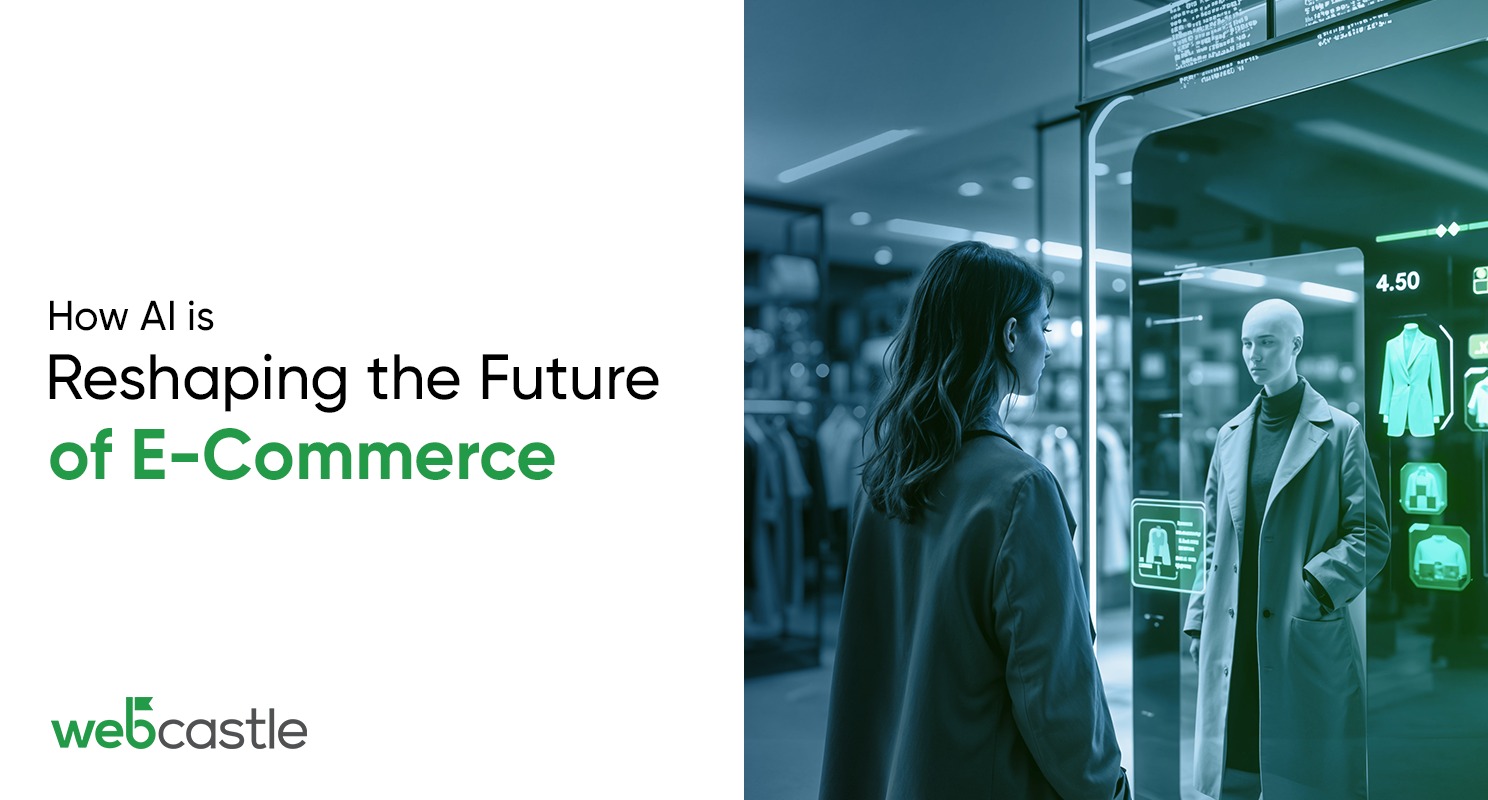Ecommerce has become the trend in this emerging technology world. This industry has rapidly evolved at an extraordinary rate. As the trend is emerging, global e-commerce retail taxes have increased to about 7.3 trillion dollars.
Ecommerce with artificial intelligence integration has become a leading trend. These ecommerce businesses are on the path of growth with the latest trends in the path. With challenges along the way, there is increased competition. This rapid adoption of artificial intelligence by the business sectors has improved the audience engagement rate, thus driving more conversions and user satisfaction.
To meet the challenges in the competitive world, leveraging these technologies in one way for businesses can help them gain a competitive advantage. The integration of advanced features such as blockchain technology, AI and other natural language processing is changing the nature of business’s new look. They have made the sectors more competitive and advanced with this technology.
In this blog, let’s try to understand how AI is reshaping as well as revolutionising the future of E-commerce. This AI integration is most loved by the business sectors, as this is being most preferred by web design and development companies and other ecommerce website development companies in Boston.
Types of AI for Ecommerce
Personalised shopping experience
Customer taste in shopping has changed with the trend. People are now more into online shopping, and with AI integration, personalisation has brought a drastic change to the business. The involvement of AI helps in understanding customer behaviour, such as browsing history, purchase behaviour, and preferences, to deliver tailored product recommendations.
This hyper-personalisation leads to a higher user engagement rate, increased sales, and improved customer loyalty. From personalisation, this has resulted in a 40% increase in revenue, and companies using the most advanced personalisation result in 10-30% more efficient marketing and cost savings.
Commerce and AI agents
AI-driven chatbots and virtual assistants provide 24/7 customer support, thus handling everything from answering product questions to tracking orders and processing returns. These systems try to enhance user experience, reduce response time. These AI agents are capable of searching, comparing, negotiating and even completing purchase orders, thus streamlining the shopping experience.
Predictive analytics
AI integration is improving the business with predictive analytics to optimise as well as streamline the process. This helps in reducing the overstocking, thus helping in operational efficiencies and improved customer satisfaction.
Enhanced search
AI helps in understanding the queries and helps in improving product discovery by understanding natural language, making it easier for shoppers to find what they want. With visual and voice search, they help the audience to easily look for what they are searching for. This enhances the user experience with natural language processing.
Security
AI analyses transaction data to check as well as prevent fraudulent activities, thus protecting both the businesses and the customers. AI helps in checking the cyber threats and other illegal activities being interrupted, with the right AI tools.
Automation and operational efficiency
AI helps in automation, thus automating repetitive processes such as order processing, customer segmenting, and marketing campaigns etc leading to significant improvements in the operational efficiency.
Conclusion
AI has now become a part of our lives; it is no longer a futuristic concept but has become a core driver for ecommerce transformation. With its nature of personalisation, automation, it enhances and optimises the operation, thus driving conversions and introducing new ways to customers about the new brands. For a smarter, intuitive and seamless shopping experience, the integration of AI is sure to bring out a future for the ecommerce industry in a more advanced way.

